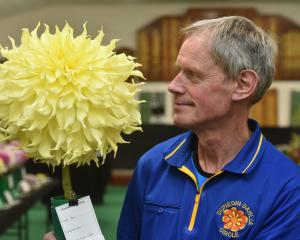Confusion still reigns as to exactly how many Covid-19 cases there are in the South.
On Wednesday, the Ministry of Health said that day’s high number of cases reported for Otago and Southland, 455, was because cases assigned elsewhere had now been classed as being cases within the southern region.
However, the SDHB said yesterday that those 455 cases were actually the number of positive lab tests recorded in the South the previous day and did not represent reassigned cases.
Neither the ministry nor the SDHB was able give any clarification on the situation yesterday, each again releasing differing case numbers.
The ministry reported 595 cases while the SDHB reported 514 — although case numbers often differ because each organisation uses a different timeframe for reporting.
Overall, the SDHB reported 1740 active cases in the region, while the ministry reported 1940 — 200 more cases.
National Dunedin list MP Michael Woodhouse, a former hospital administrator, said having an accurate count of how many cases there were in the region was vital, especially for health workforce planning.
"The university needs to know, the health system needs to know, the people need to know ... and it should not be too hard for the ministry to find out, Mr Woodhouse said.
"The reality is that it is a hell of a lot and people need to continue with public health measures such as mask wearing and hand hygiene."
High case numbers, particularly among students, would soon filter into the wider population Mr Woodhouse said.
"People reading this data want to know where cases are, that’s the whole point of reporting it, and it should be fixed so that we know what we’re dealing with, which is a widespread outbreak, and then corral our resources and take steps."
Nationally, 6137 cases were reported yesterday.
The southern region has the third-highest rate of Covid-19 infection per head of population (172 cases per 100,000 people) and sits fourth in terms of active cases, its 1940 topped only by Counties Manukau (9893), Auckland (5025) and Waikato (2529).
Director-general of health Dr Ashley Bloomfield said what was happening in the South should be taken as a warning for the rest of New Zealand.
"All areas of the country will move very rapidly," he said.
"We saw southern, in the space of a couple of days, go from a very low number of cases to one of our highest test positivity rates and one of our highest case rates in the country."
It was revealed yesterday that one in five Covid tests taken in Dunedin were returning a positive result, and the rate of positive tests across the region was well above the national rate of just over 10%.
Southern DHB acting quality and clinical governance solutions director Dr Hywel Lloyd said while the rapid escalation of cases in the region was alarming, it closely matched modelling which had predicted the region could expect more than 18,000 cases of Covid-19 this year, 70% in March and April.
"We have got here faster than we thought we would but it has followed the modelling, and this is probably the first time in this whole outbreak that it has followed the modelling and therefore we are expecting our hospital admissions to follow that," Dr Lloyd said.
No Southerners had been admitted to hospital with Covid-19 as yet, but modelling predicted more than 650 people could need a hospital stay.
"That’s what we have to expect. We are trying to maintain the care we need to deliver ... have really good plans so that if you come to hospital and you are Covid positive you take a different path and go into a different ward area."
Dr Lloyd said the easing of restrictions to Phase 3 last night would likely mean that there would be more people with Covid-19 in the community, but that it should be remembered the majority of that community had been vaccinated and many were also boosted.
"We also should also still be wearing face masks and social distancing."
It is expected at Phase 3 most people with Covid-19 will look after themselves at home, and WellSouth medical director Carol Atmore said support would be available as needed.
"Everyone can contact their usual healthcare provider if they feel they are becoming more unwell, whether they are self-managing or in contact with health provider teams during their Covid illness.”
Yesterday, the South recorded its first cases in people aged over 70. An SDHB spokeswoman said no cases had been recorded in aged residential care.














